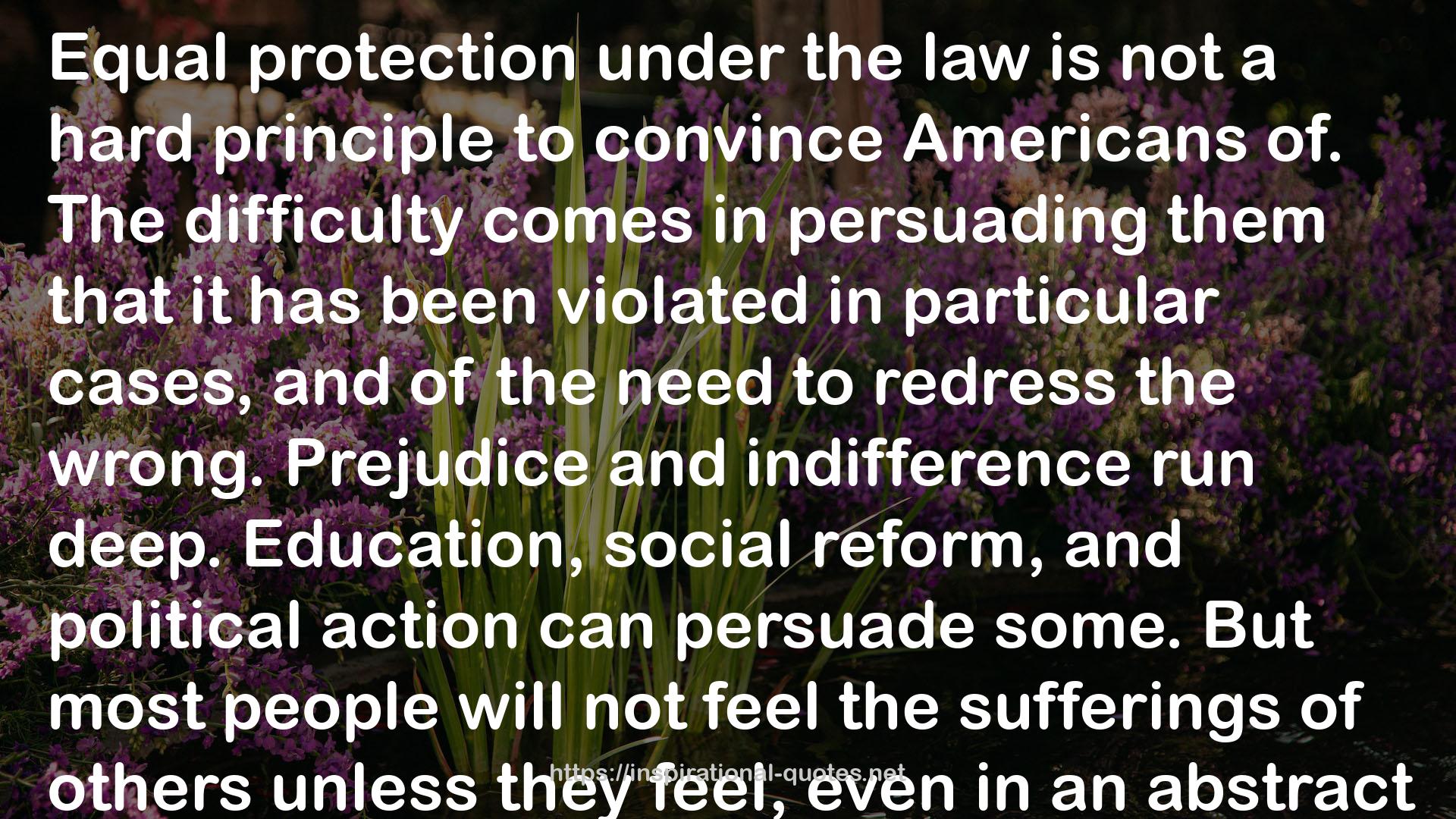" Equal protection under the law is not a hard principle to convince Americans of. The difficulty comes in persuading them that it has been violated in particular cases, and of the need to redress the wrong. Prejudice and indifference run deep. Education, social reform, and political action can persuade some. But most people will not feel the sufferings of others unless they feel, even in an abstract way, that 'it could have been me or someone close to me'. Consider the astonishingly rapid transformation of American attitudes toward homosexuality and even gay marriage over the past decades. Gay activism brought these issues to public attention but attitudes were changed during tearful conversations over dinner tables across American when children came out to their parents (and, sometimes, parents came out to their children). Once parents began to accept their children, extended families did too, and today same-sex marriages are celebrated across the country with all the pomp and joy and absurd overspending of traditional American marriages. Race is a wholly different matter. Given the segregation in American society white families have little chance of seeing and therefore understanding the lives of black Americans. I am not black male motorist and never will be. All the more reason, then, that I need some way to identify with one if I am going to be affected by his experience. And citizenship is the only thing I know we share. The more differences between us are emphasized, the less likely I will be to feel outrage at his mistreatment.
Black Lives Matter is a textbook example of how not to build solidarity. There is no denying that by publicizing and protesting police mistreatment of African-Americans the movement mobilized supporters and delivered a wake-up call to every American with a conscience. But there is also no denying that the movement's decision to use this mistreatment to build a general indictment of American society, and its law enforcement institutions, and to use Mau-Mau tactics to put down dissent and demand a confession of sins and public penitence (most spectacularly in a public confrontation with Hillary Clinton, of all people), played into the hands of the Republican right.
As soon as you cast an issue exclusively in terms of identity you invite your adversary to do the same. Those who play one race card should be prepared to be trumped by another, as we saw subtly and not so subtly in the 2016 presidential election. And it just gives that adversary an additional excuse to be indifferent to you. There is a reason why the leaders of the civil rights movement did not talk about identity the way black activists do today, and it was not cowardice or a failure to be "woke". The movement shamed America into action by consciously appealing to what we share, so that it became harder for white Americans to keep two sets of books, psychologically speaking: one for "Americans" and one for "Negroes". That those leaders did not achieve complete success does not mean that they failed, nor does it prove that a different approach is now necessary. No other approach is likely to succeed. Certainly not one that demands that white Americans agree in every case on what constitutes discrimination or racism today. In democratic politics it is suicidal to set the bar for agreement higher than necessary for winning adherents and elections. "
― Mark Lilla , The Once and Future Liberal: After Identity Politics
